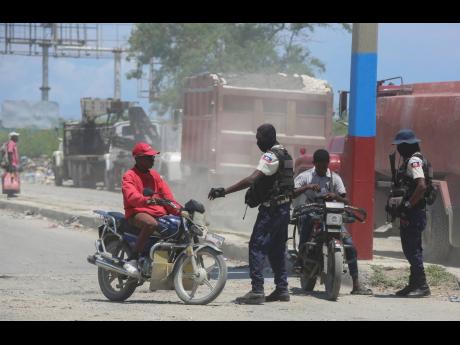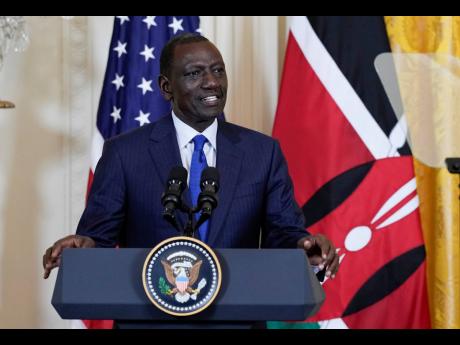Editorial | Haiti’s better chance
President William Ruto’s declaration that the promised deployment of Kenyan police to Haiti is imminent is a welcome development. An advance group of Kenyans, he disclosed last week, is already in Haiti, laying the groundwork for the 1,000 officers he pledged to the stabilisation mission.
Now that it is clear that Kenya is upholding its end of the bargain, this newspaper hopes that other countries which are committed to participating in the Haitian deployment – either with personnel or other resources – will follow through on their pledges, and that more will join. Haitians deserve a respite from their country’s long, ongoing nightmare of insecurity.
In that regard, the countries that have undertaken to help protect ordinary people from the impunity of gang violence, and to create an environment in which the Haitian state can rebuild itself and provide basic services to its citizens, ought not be deterred by critics who claim that this is merely another foreign imposition on Haiti.
Haiti’s kith and kin, especially, must be resolute in the face of any criticism. For it is easy for people who are not at the centre of this humanitarian crisis to, from the safety of their communities, and with the unlikelihood of their blood being spilt, engage in illogical rhetoric that advances some ephemeral cause.
EARLY ASSERTION
Haiti, the world’s first black republic and the first of the New World’s slave colonies to overthrow its slavers, has a long history of political and economic instability, much of it a consequence of the country’s early assertion of its right to freedom and self-determination.
But it is also true that not all of Haiti’s problems are externally derived. Its political elite have largely failed at consensus-building and compromise, and of being faithful to institutions – all of which are essential to maintaining a viable democracy.
But, notwithstanding the deepened crisis into which the country has descended since the assassination of President Jovenel Moïse two and half years ago, Haiti could, if the opportunity is grasped, be on the cusp of having another go at democracy. However, the gangs that control large swathes of the capital Port-au-Prince, as well as other parts of the country, have first to be brought to heel.
More than 5,000 people were killed by gangs in 2023. So far in 2024, the number is more than half that amount. In this environment of instability, tens of thousands of Haitians have become internally displaced, and over half the population is food-insecure. Many are downright hungry.
It is against that backdrop that Mr Ruto last year pledged his country’s leadership of a policing mission to push back against the gang activity, so that Haiti can be pulled back from the precipice of being a failed state.
“We are doing this to stop more people from losing their lives to gangs,” Ruto said last week.
HUMANITARIAN INITIATIVE
We make two important observations about the policing mission and the ongoing political initiatives in Haiti. First, although Western countries, including the United States, Canada and France, are providing financial and logistical support for the deployment, this is not an occupying force. It is a security and humanitarian initiative. Many of Haiti’s kith and kin will be on the ground.
Further, unlike in 2004 when the aforementioned triumvirate dislodged the Caribbean Community’s (CARICOM) effort, led by Jamaica, to sustain constitutional order in Haiti (and in the process facilitated the removal of President Jean-Bertrand Aristide), this time, Haiti’s CARICOM partners have been at the centre of the project.
Indeed, a CARICOM Eminent Persons Group of three former regional prime ministers (Kenny Anthony of St Lucia; Bruce Golding, Jamaica; and Perry Christie, The Bahamas) coaxed Haitian politicians and civil society interests towards the mechanisms that could rescue democracy in their country. The establishment of a nine-member The Transitional Presidential Council (TPC), its rocky start notwithstanding, is especially significant.
That council will choose an interim prime minister, organise for the deployment of the security mission, as well as establish the framework for elections in two years.
In a low-trust society like Haiti, with broken political institutions and an antipathy to sharing power, the TPC potentially provides a template for a long-term executive arrangement that limits the accumulation of power in a single pair of hands.
But there has to be security for the other things to happen. Hopefully, even before the arrival of the security mission, the gangs of Haiti will begin to lay down their arms.


